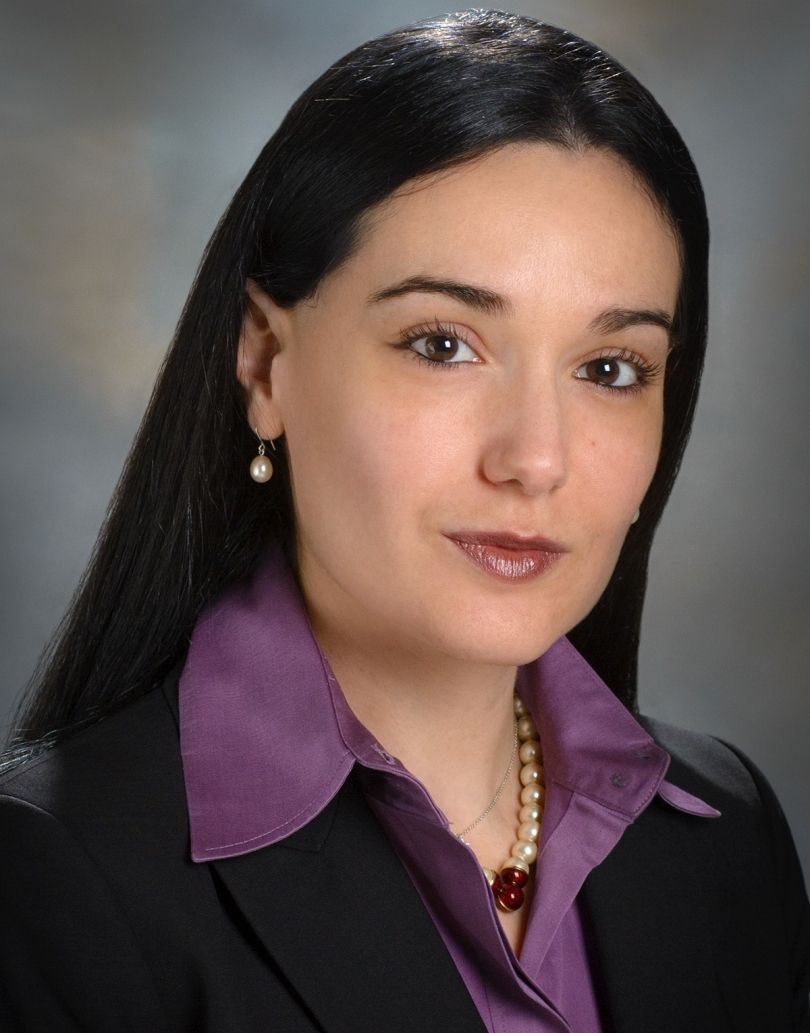- Center on Health Equity & Access
- Clinical
- Health Care Cost
- Health Care Delivery
- Insurance
- Policy
- Technology
- Value-Based Care
Adding Adjuvant Nivolumab Builds on Standard of Care for Resectable NSCLC
The results of CheckMate 77T showcase the improved event-free survival for patients with resectable non–small cell lung cancer who receive nivolumab in both the neoadjuvant and adjuvant setting and may have practice-changing implications.
While nivolumab plus chemotherapy is standard of care in the neoadjuvant setting for eligible patients with resectable non–small cell lung cancer, the use of adding nivolumab in the adjuvant setting could be practice changing based on the results of CheckMate 77T, which were presented at ESMO Congress 2023, held October 20-24, 2023, virtually and in Madrid, Spain.
Tina Cascone, MD, PhD
Image credit: MD Anderson

The results of the phase 3 CheckMate 77T trial found the use of nivolumab plus chemotherapy followed by surgery and then adjuvant nivolumab had statistically significant and clinically meaningful event-free survival (EFS) improvement compared with chemotherapy plus placebo, explained Tina Cascone, MD, PhD, Department of Thoracic/Head and Neck Medical Oncology, Division of Cancer Medicine, MD Anderson.
The study included 461 patients with resectable stage IIA-IIIB NSCLC who had no prior systemic anticancer treatments and no EGFR mutations or known ALK alterations. They were randomized in a 1:1 fashion to receive either neoadjuvant nivolumab plus chemotherapy followed by surgery and 1 year of adjuvant nivolumab (n = 228) or neoadjuvant placebo plus chemotherapy followed by surgery and adjuvant placebo for 1 year (230).
The median (range) follow-up was 25.4 (15.7-44.2) months at the time of the database lock date on September 6, 2023. The overall survival data is not fully tested and continues to mature, Cascone note. She presented the prespecified EFS interim analysis plus secondary end points.
More than half of the patients in both arms were from Europe and 64% of patients had stage III disease. In addition, 56% of patients in the nivolumab arm and 55% of patients in the placebo arm had PD-L1 expression ≥ 1%. This subgroup was mostly patients who still had low expression with a median tumor PD-L1 expression of 10% across both arms.
In the nivolumab arm, 85% completed their neoadjuvant treatment, 78% received surgery, and 62% subsequently received adjuvant treatment. In the placebo arm, 89% completed neoadjuvant treatment, 77% received surgery, and 66% received the adjuvant treatment. In both arms, 60% have completed treatment at this time and approximately 5% are still undergoing treatment.
The results show that perioperative nivolumab had statistically significant improvement in EFS. The median EFS was not reached in the nivolumab arm compared with 18.4 months in the placebo arm (95% CI; HR 0.58, 0.42-0.81; P = .00025).
At 1 year, the EFS rates were 73% for nivolumab and 59% for placebo, and at 18 months the rates were 70% for nivolumab and 50% for placebo. These results suggest “greater benefits for our patients over time,” Cascone explained.
In addition, there was an EFS benefit seen across subgroups. There were particular benefits in stage III NSCLC and squamous disease. Similarly, while nivolumab improved EFS compared with chemotherapy for patients with PD-L1 < 1%, it improved “more profoundly in those with PD-L1 expression of 1% or more.” The median EFS for PD-L1 < 1% was 29.0 months vs 19.8 months for placebo, but the median EFS for PD-L1 ≥ 1% was not reached compared with 15.8% for placebo. In patients with high expression (PD-L1 ≥ 50%), median EFS was not reached compared with 8.0 months for placebo.
An exploratory analysis found that receiving adjuvant nivolumab improved EFS compared with patients who did not receive adjuvant therapy. In the nivolumab arm, the median EFS was not reached for patients who received the adjuvant therapy compared with a median EFS of 8.8 months for patients in the nivolumab arm who did not receive adjuvant therapy.
“Populations of patients in these subgroups are heterogeneous, and therefore, the results of this exploratory analysis should be taken with caution,” Cascone noted.
The safety was similar across both arms and across study phases. Treatment-related adverse events occurred in 89% of the overall nivolumab arm and 87% of the overall placebo arm, in 86% of neoadjuvant nivolumab and 85% of neoadjuvant placebo, and in 50% of adjuvant nivolumab and 30% adjuvant placebo.
“In conclusion, CheckMate 77T is the first phase 3 perioperative study to build on the standard of care [of nivolumab plus chemotherapy] and supports perioperative [nivolumab] as a potential new treatment option for patients with resectable non–small cell lung cancer,” Cascone concluded.
